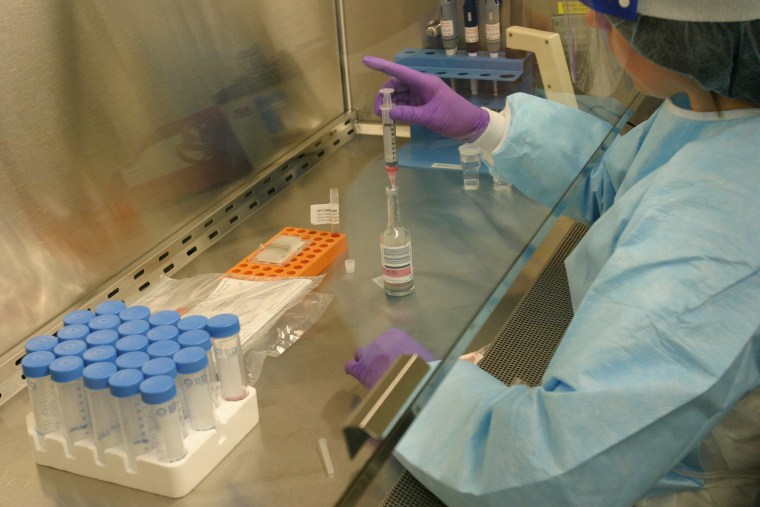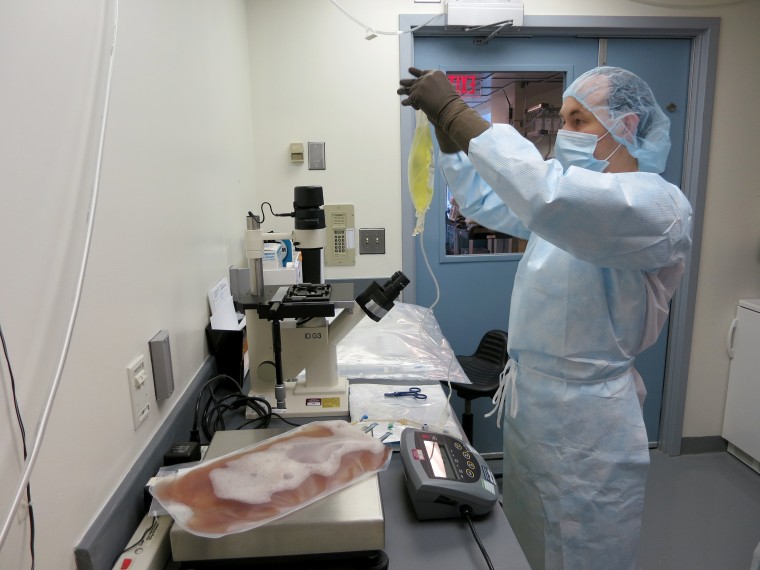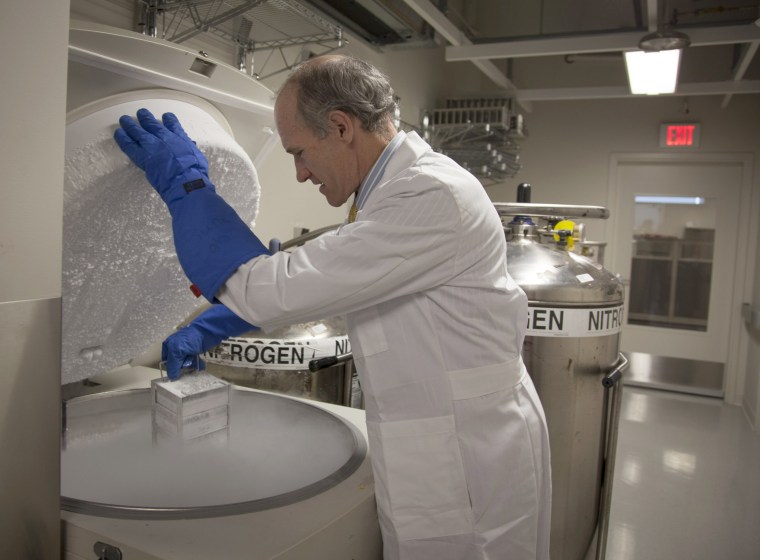An experimental type of cancer treatment in which immune cells are trained to seek and destroy cancer cells has worked for years in some patients, providing a complete remission in four cases, researchers reported on Wednesday.
The trained cells are not only thriving, but appear to be multiplying, the researchers at the University of Pennsylvania found, providing ongoing protection against cancer.
It’s the latest update on a highly personalized approach to treating chronic lymphocytic leukemia, or CLL, that’s been exciting oncologists for years. While it’s clearly not for every patient, it is one of those made-to-fit immunotherapies that have startling results in a few of those who try them.
Out of 14 patients who have tried the therapy, eight were helped. Four of them had a complete remission, although one later died from an infection when he had a skin cancer removed from his leg, the researchers reported.
“Here I am today. I feel normal. I feel good."
Another four had what’s called a partial response, meaning the cancer stopped for a while. Three have since died but a fourth’s been alive for three years.
Two of the six patients who got no benefit from the treatment died but the others are trying other therapies.
William Ludwig of Bridgeton, New Jersey, was the first patient to try it out, in 2010. He’d been through grueling rounds of chemotherapy but the cancer never went away.
“I was informed that I was running out of options,” Ludwig, 70, told NBC News.
He got three infusions of his own T-cells and got immediately sicker. “It very dramatically, actively went to work killing the cancer cells that were in my body to such a degree that my vital organs began shutting down,” he said.
“It was too much of a shock for the system.”

But he pulled through. “Here I am today. I feel normal. I feel good,” said Ludwig, who had just bought a new RV. He takes his 10 grandchildren and some of his three great-grandchildren traveling in the RV.
“We are enjoying life. I got a second chance so I am trying to do all that I can do,” he said.
CLL is the most common form of leukemia in adults and is diagnosed in more than 15,000 people a year. It kills 4,600 a year. There’s no cure, although treatments can control it. Some of them are fairly harsh, including stem cell transplants, which require finding a bone marrow donor who matches and chemotherapy to destroy the patient’s own affected bone marrow.
There’s also a pill called Imbruvica that lowers the risk of death from CLL by 60 percent or more.
The Penn team’s been trying a complex mixture of immunotherapy and gene therapy. They remove some of the patient’s T-cells, which are immune cells that help find and kill bacteria, viruses and cancer cells. They use a virus to genetically engineer the T-cells so that they specifically seek and destroy the leukemia cells.
These T-cells not only survive for years, but seem to be multiplying, the researchers report in the journal Science Translational Medicine.
"The modified cells remain in patients' bodies for years after their infusions, with no sign of cancerous or abnormal B cells."
"Importantly, our tests of patients who experienced complete remissions showed that the modified cells remain in patients' bodies for years after their infusions, with no sign of cancerous or abnormal B cells," said Dr. Carl June, the Penn cancer immunotherapy expert who’s led the trial team.
Now they’re trying it against a range of other cancers, including other types of leukemia, multiple myeloma, non-Hodgkin lymphoma, ovarian cancer, pancreatic cancer, mesothelioma and the brain cancer glioblastoma. Other teams of researchers are also trying it out.

Lab costs for each patient are about $25,000, the researchers calculate. That's less than many new targeted cancer drugs and far less than the cost of a bone marrow or stem cell transplant.
The researchers are not sure why some patients are helped by the therapy and others aren’t. They cannot find any distinguishing factors and, unlike other tailored cancer therapies, there doesn’t seem to be a specific genetic test that can help point them to the patients most likely to benefit.
It's a one-time treatment, but Ludwig returns to the clinic every six weeks for infusions of antibodies, called IVIG, that keep his immune system strong.
"It just needs a little help," Ludwig said.

